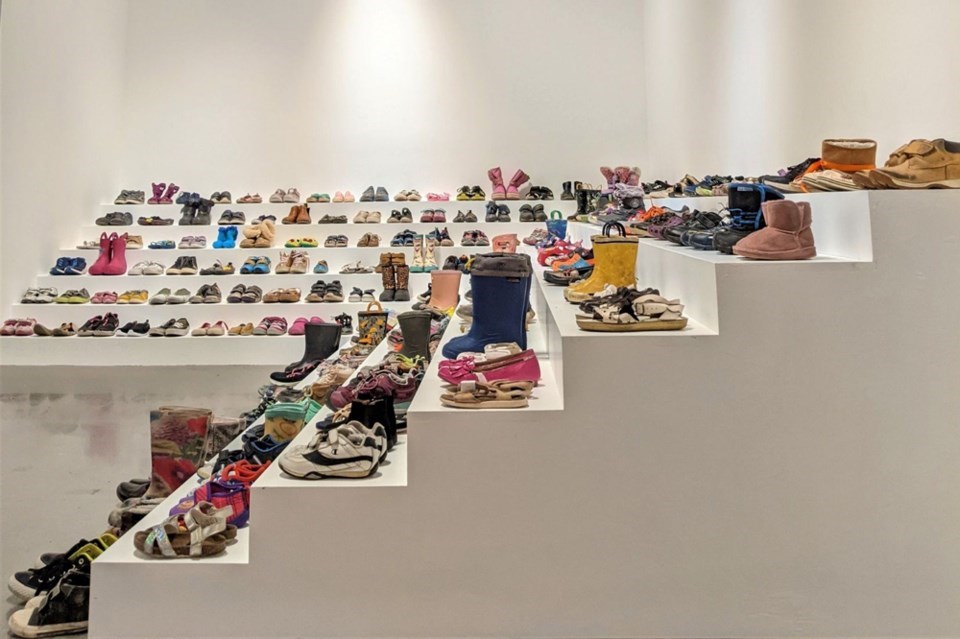The Truth and Reconciliation Commission calls for action: “It will take time, investment and involvement of all of us to get it right.”
New Westminster is leading British Columbia in the work to implement Truth and Reconciliation’s calls to action, but many BC communities are keen to do the work – they just need a little help.
Trudi Goels is co-chair of Women Transforming Cities, a non-profit organization dedicated to bringing justice to communities. The group recently released their 81-page report, “The TRC Calls to Action in BC Municipalities – Progress, Barriers, and Opportunities to Accelerate Implementation.”
Goels said the group started the work after noticing that reports were being made at the federal and provincial levels of the Truth and Reconciliation Commission’s calls, but no one was really looking at what the municipalities were doing.
“And there are 10 calls to action that are aimed at local governments,” she told the council at its Feb. 13 meeting.
The group set out to survey all of BC’s communities, not to produce a “testimony” but to get a broader view of what is needed in the province to move this work forward, Goels said.
According to Goels, many local authorities were keen to talk about the work being done in their communities.
“So 54 percent of the communities that we spoke to had started the Truth and Reconciliation Commission calls,” she said. “But they only started on one to three of those calls. There are a number of them that they have had a hard time getting hold of.”
Of the municipalities that responded to the group’s survey, none responded to all of the calls to action for municipalities.
“As you can imagine, small towns have the hardest time doing this work because they have the least resources, they don’t have enough staff; They don’t have enough money for this work,” Goels said. “But there is also a lot of good news to come out of this work.”
Goels, a New West resident, said she took a peek at New West’s responses as she’s always curious about how the City of New Westminster is doing.
“I’m really pleased to say that I believe we are leaders in this work in the New West,” she said. “And a large part is because the Council made a decision that we need to move this work forward. And more importantly, put money behind it so the work is properly resourced to move forward. It’s really complicated to do this work in New Westminster; we already know that.”
The report takes into account the Truth and Reconciliation Commission’s calls to action that relate to local governments. These include:
Number 17: Lower the barriers to name reclamation
Number 23: Provide access to culturally appropriate healing
Number 40: Supporting culturally appropriate services for survivors of violence
Number 43: Adoption and implementation of UNDRIP
Number 47: Rejection concepts to justify boarding schools and land decrees
Number 57: Providing training for public officials
Number 75: Provide burial sites and honor children
Number 77: Provide records to the National Center for Truth and Reconciliation
Number 87: Celebrate Indigenous People’s Achievements
Number 88: Supporting the development of local athletes
In 2015, Canada’s Truth and Reconciliation Commission released its final report detailing the experience and impact of the boarding school system. The document contained 94 calls for action in a variety of areas, including child protection, education, health, justice, language and culture.
In April 2018, the City Council of New Westminster Coun. Nadine Nakagawa’s motion to support the TRC’s 2015 report “Honoring the Truth” and the Truth and Reconciliation Commission’s 94 “Calls to Action” and the United Nations Declaration on the Rights of Indigenous Peoples. The city said it will use the statement as a framework for truth and reconciliation.
Ginger Gosnell-Myers (Nisga’a and Kwakwak’awakw), Fellow in Decolonization and Urban Indigenous Planning at Simon Fraser University’s Morris J. Wosk Center for Dialogue, wrote the foreword of the study. She said that promoting reconciliation in a community is about building and maintaining respectful and reciprocal relationships with First Nations and urban Indigenous communities.
“With 78 percent of BC’s Indigenous Peoples living, working and studying in urban areas and areas outside of protected areas, municipalities play perhaps the greatest role in fostering Indigenous relationships. Reconciliation gives us the opportunity to work together for a better future – and the TRC calls to action are a direct roadmap for doing so,” she wrote. “Across the country, this is a new goal of many communities: to acknowledge the truth that these lands have always been the undivided home of indigenous peoples, and to collectively create a local identity that benefits all. Yes, there is still a long way to go. But that is the nature of a meaningful reconciliation. It will take time, investment and involve all of us to get it right.”
Don’t miss interesting posts on Famousbio








